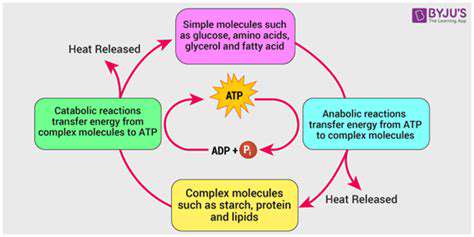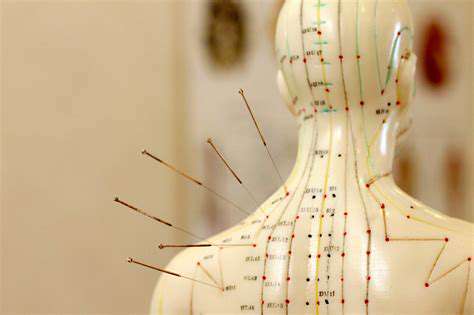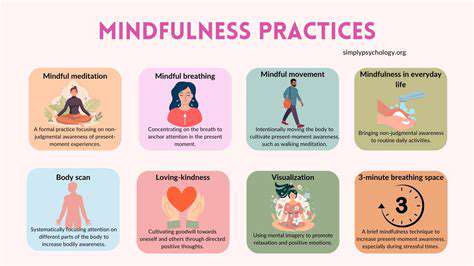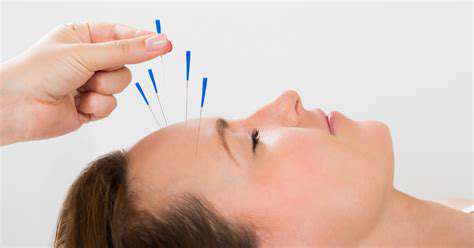TCM for Post Workout Recovery: Enhance Healing
The Principles of TCM for Muscle Repair
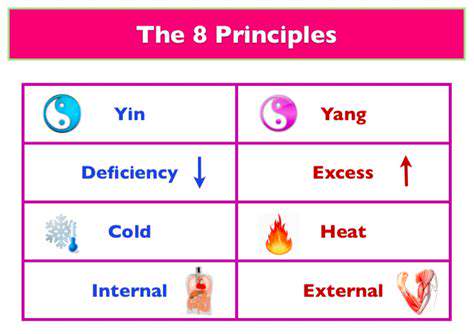
Understanding the Fundamentals of TCM Muscle Relief
Traditional Chinese Medicine (TCM) approaches muscle pain and tension from a holistic perspective, focusing on restoring balance within the body's energy system, or Qi. This approach considers not just the physical manifestation of the problem, but also the emotional and environmental factors that might be contributing to the imbalance. Understanding the root cause of the discomfort is key to effective TCM treatment, as it allows for a tailored approach to address the specific needs of the individual.
TCM recognizes the interconnectedness of the body's various systems. Muscle pain might be a symptom of an underlying imbalance in the meridians, the channels of energy flow. Disruptions in these pathways can lead to a stagnation of Qi, resulting in pain, stiffness, or weakness. Proper diagnosis through observation of pulse, tongue, and overall energy pattern is essential to pinpoint the specific imbalances.
Identifying the Underlying Energy Imbalances
TCM diagnosis often involves examining the patient's pulse, tongue, and overall energy patterns. By observing these cues, practitioners can identify potential imbalances in the body's energy flow, such as stagnation, deficiency, or excess. These imbalances can stem from various factors, including stress, diet, and lifestyle choices.
Identifying the precise nature of the energy imbalance is crucial for determining the most effective treatment strategy. Different imbalances require different therapies to restore equilibrium and promote healing. For example, a deficiency in Qi might necessitate nourishing herbs and practices that promote energy production, while a stagnation of Qi might require techniques to improve circulation and promote the free flow of energy.
TCM Techniques for Muscle Relaxation
Various techniques are employed in TCM to alleviate muscle tension and promote relaxation. These include acupuncture, which involves inserting thin needles into specific points along the meridians to stimulate energy flow and reduce pain. Acupressure, a similar technique, uses pressure applied to specific points to achieve similar results.
Moxibustion, another important technique, involves burning mugwort herbs near the affected area to warm the meridians and promote circulation. These techniques, when combined with other therapies, can create a synergistic effect to alleviate muscle pain and promote overall well-being. The goal is to restore balance and promote healing through the body's innate ability to recover.
Lifestyle Considerations for Muscle Health
TCM emphasizes the importance of lifestyle choices in maintaining muscle health and preventing imbalances. A balanced diet rich in nourishing foods is essential for supporting the body's energy levels and promoting overall well-being. This often includes incorporating foods with cooling properties to reduce inflammation and promote relaxation.
Regular exercise and mindful movement are also crucial for maintaining healthy muscles and reducing stress. Stress management techniques, such as meditation and yoga, can help to balance the body's energy and reduce tension. Mindfulness of one's daily life, including diet, stress levels, and exercise, is vital to the overall success of TCM muscle treatment.
Dietary Recommendations for Optimal Recovery
Nutrition for Muscle Repair
Proper nutrition is crucial for post-workout recovery, particularly focusing on replenishing glycogen stores and providing essential amino acids for muscle protein synthesis. Consuming a balanced meal rich in complex carbohydrates, lean proteins, and healthy fats within the first hour after exercise is ideal. This helps kickstart the recovery process by providing the building blocks for repairing damaged muscle tissue and replenishing energy reserves. For example, a meal containing brown rice, grilled chicken breast, and steamed vegetables provides a comprehensive nutritional profile to support muscle repair and growth.
Prioritizing protein intake is key. Protein sources such as fish, poultry, beans, and lentils are excellent choices. These foods contain essential amino acids, the building blocks of muscle tissue. Consuming enough protein helps repair and rebuild muscle fibers damaged during exercise, promoting faster recovery and reducing muscle soreness.
Hydration and Electrolyte Balance
Maintaining proper hydration is essential for optimal recovery. Dehydration can negatively impact performance and recovery by reducing blood volume, affecting nutrient delivery to muscles, and increasing muscle soreness. Drinking plenty of water throughout the day, especially before, during, and after exercise, is crucial. Electrolyte replacement is also important, as sweat loss during exercise leads to electrolyte depletion, which can affect muscle function and overall well-being. Sports drinks or electrolyte-rich foods can help replenish lost electrolytes.
Adequate hydration is crucial for transporting nutrients to the muscles, removing waste products, and regulating body temperature. Paying attention to thirst cues and ensuring consistent fluid intake throughout the day, particularly on workout days, is important. Carry a water bottle and sip frequently to maintain optimal hydration levels.
Importance of Micronutrients
Micronutrients, including vitamins and minerals, play a vital role in supporting the recovery process. Vitamins like vitamin C, vitamin D, and the B vitamins are involved in various metabolic processes, including energy production, antioxidant defense, and tissue repair. Minerals like zinc and magnesium are also important for muscle function, protein synthesis, and immune response. A diet rich in fruits, vegetables, and whole grains is a good way to obtain these essential micronutrients.
Post-Workout Snacking Strategies
Post-workout snacking is an important part of the recovery process. It aids in replenishing glycogen stores and providing essential nutrients for muscle repair. A snack containing a combination of carbohydrates and protein is ideal. Examples include a handful of almonds with a banana or a small portion of Greek yogurt with berries. These snacks help to optimize the body's recovery response and provide sustained energy levels throughout the day.
Timing is key when it comes to post-workout snacking. Aim to consume a snack within 30-60 minutes of finishing your workout. This timeframe allows your body to effectively utilize the nutrients for recovery and muscle repair. A well-timed snack can significantly impact the speed and quality of your recovery.



